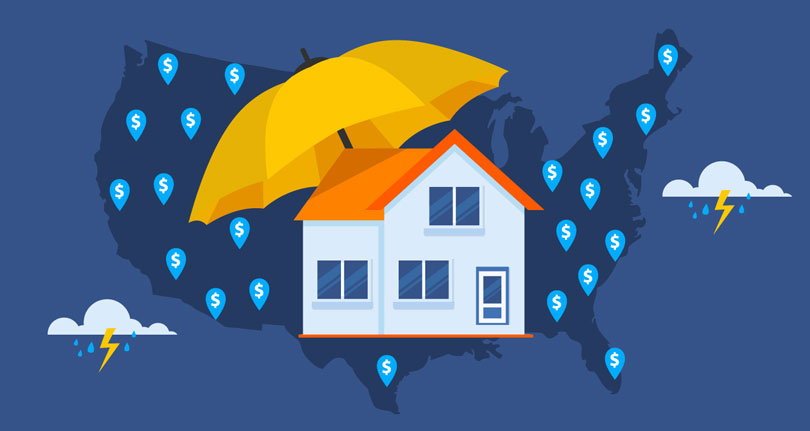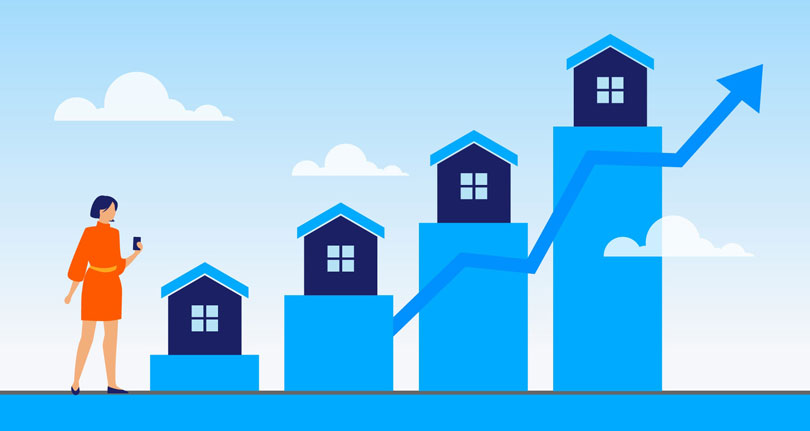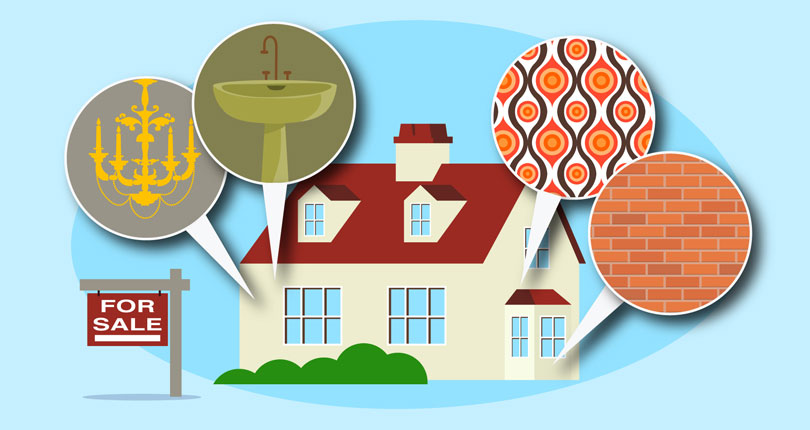Internet as a Utility: What do Americans think?
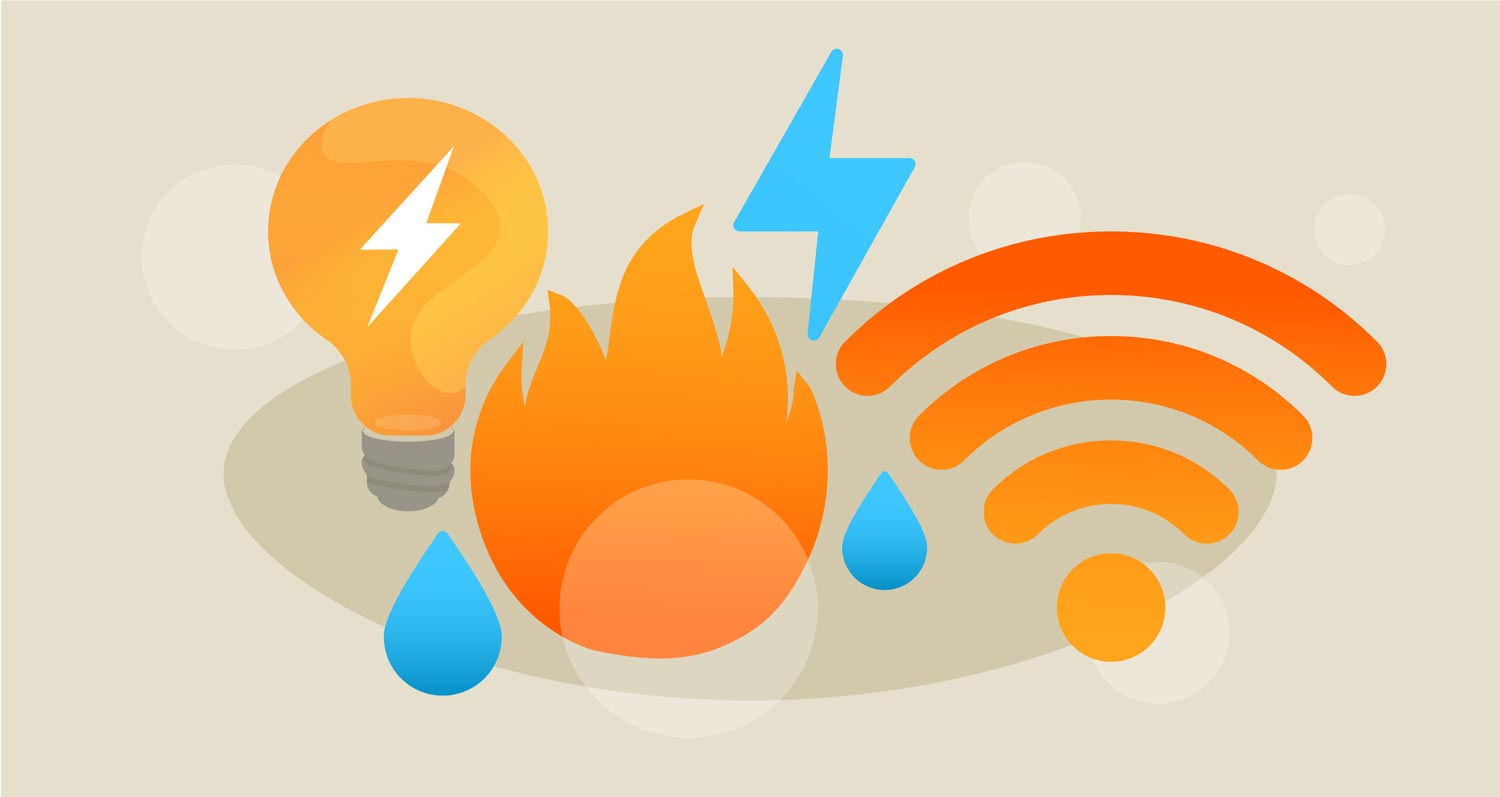
President Biden has indicated many times before that “Americans need access to high-speed, affordable broadband service” especially in relation to the events of the global pandemic. But does everyone agree with the President?
We spoke to over a thousand Americans to get their thoughts on whether the internet should be treated as a utility, how this may impact people, and the reasons behind their thoughts.
Key Stats:
- 2 in 3 (68%) would support the internet as a utility
- An overwhelming majority (95%) believe internet access should be accessible to all Americans, but 13% believe this access should be limited by broadband speed
- The majority (87%) agree that the internet should be free for educational purposes
- Over half (52%) believe internet providers offer poor value for money
- Most (64%) believe that internet provider competition is beneficial for consumers
- 3 in 4 (77%) believe the internet is essential to achieving the American dream in 2021
- Over half (52%) avoided seeking medical help during the pandemic due to lack of telehealth options
Section 1: The Internet as a Utility
2 out of 3 would support the internet as a utility
Over two thirds (68%) of our respondents said they would support treating the internet as a utility. Slightly more than 1 in 10 (12%) of the total sample would outright oppose this view, with a fifth (20%) indifferent or unsure in their choice.
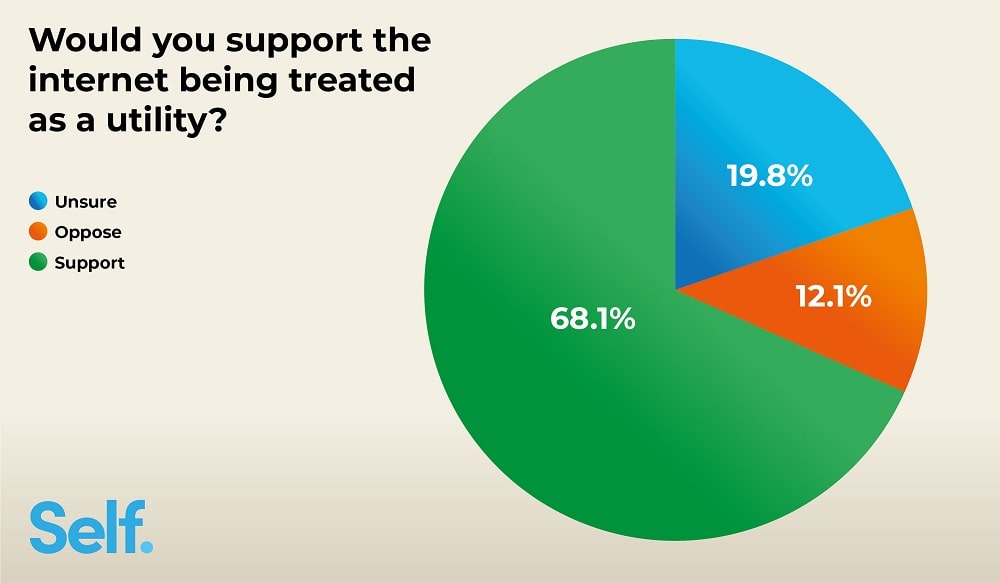
Despite the majority supporting the internet as a utility, only 33% would be prepared to pay more taxes to make this a reality, with another third (33%) definitely unprepared, and a final third (34%) unsure of their position.
19% believe there is not a ‘digital divide’ in the US
A key discussion in relation to the internet as a utility is the fact that approximately 21 million people lack internet access, therefore supporters believe that it being a public utility would grant more people access. When asked, just over 8 in 10 (81%) said that they believe there is a digital divide in the United States, with the remaining 19% stating they do not believe such a divide exists.
Americans think internet access should be a right for all citizens, but not at high-speeds
A large majority (95%) believe it should be a right for everyone to have access to some form of internet. When asked further on this topic however, only 87% believe all Americans should have access to high-speed internet.
Over half (52%) believe internet providers are bad value for money
When asked how they would rate their current internet provider on value for money it was almost a 50/50 split in opinion. Just over half (52%) said that their current provider offers ‘bad’ value for money, with 48% saying the opposite in that their current provider is ‘good’ value.
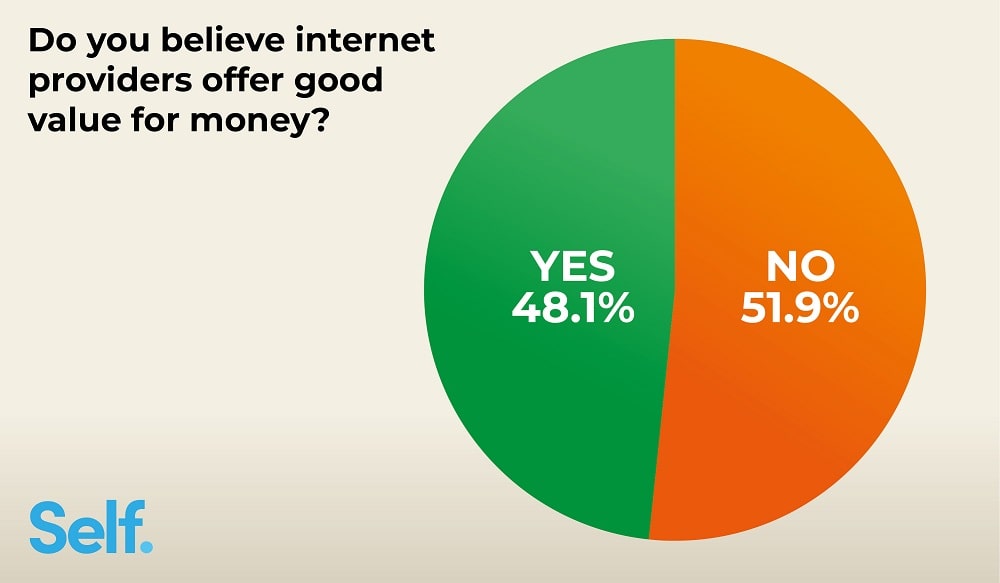
Despite this, a larger majority (77%) said that the speeds they received were good enough for their daily usage, with 23% unhappy with their broadband performance.
64% believe internet provider competition is beneficial for consumers
In the wider discussion of the internet being treated as a utility, opposers argue that competition among providers consequently improves service quality as the businesses have to be better to win the public’s money.
We asked our sample whether they believed this was the case and 64% said they believed competition between internet providers was beneficial for consumers as it ‘improves service’, despite the majority also agreeing the service should be a utility. The remaining 36% disagreed with this statement.
Americans know who to trust with their data: 41% say no one should have their internet data
If the internet was to be treated as a public utility, this would mean more control and intervention from the government, and with this, discussions of data and privacy erupt.
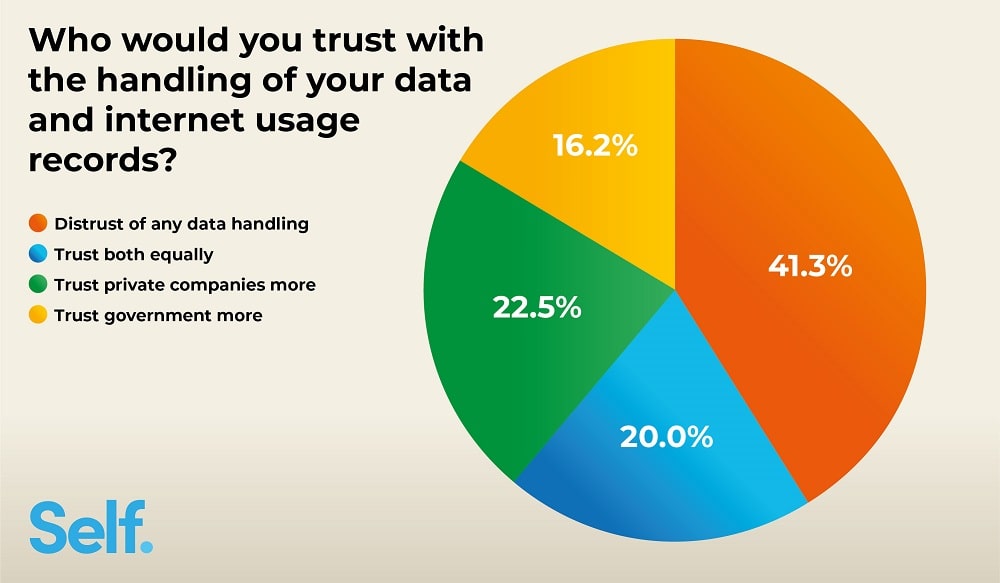
When asked who they trust more to handle their data from internet usage, our sample leaned towards nobody, with 41% stating they distrust anyone with their data. When it came to private companies, like current internet providers, or the government, there was a slight preference to companies handling data (22%) rather than governments (16%).
Section 2: The importance of the internet for the public
Irrespective of what Americans think about internet providers and whether it should be classed as a public utility or not, we also wanted to find out more about how important the internet was to our sample.
77% believe the internet is essential to achieving the American dream in 2021
What could be one of the most important things for citizens to achieve? For many, it’s the American dream. Just over 3 in 4 (77%) believe that the internet is ‘essential’ to achieving the American Dream, with the remaining 23% believing the opposite.
The majority agreeing to this statement is unsurprising when 90% of our sample said that the internet played an ‘essential role’ in their job, whether they are solely based online or it is a part of their daily operations.
Top 3 reasons for internet usage: information, social media, news updates
To better understand the importance of the internet in people’s everyday lives, we asked people what their top primary reasons were for using the internet. The top reasons were found to be: to gather information (67%), to use social media platforms (64%), and to get news updates (59%). The full primary reasons can be seen in the chart below:
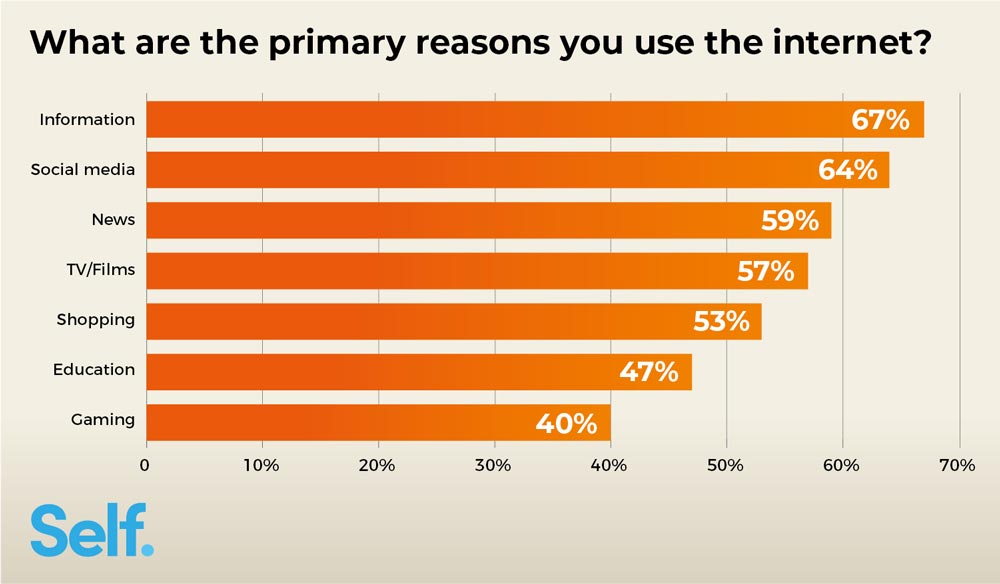
The internet should be free for educational purposes, 87% agree
With education being a primary reason for almost half (47%) of people, we wanted to find out more. Interestingly, 87% believe that the internet should be totally free for educational purposes only.
Such a large agreement could have been influenced by the fact that 64% of our sample say that at some point, they or a close family member, have had to use public WiFi for educational purposes. This would include accessing online learning material, creating documents for college and school, or other means of learning online. For some, public internet access is a lifeline.
Over half (58%) have had to use public WiFi hotspots for work
Away from education, it seems that public WiFi and internet access is also important for some to achieve work goals. At some point, 58% have had to use public WiFi hotspots for work. For the majority (65%) that is due to travelling and not having internet access elsewhere, but for many others, it seems that public WiFi is a necessity when they can’t rely on their home internet.
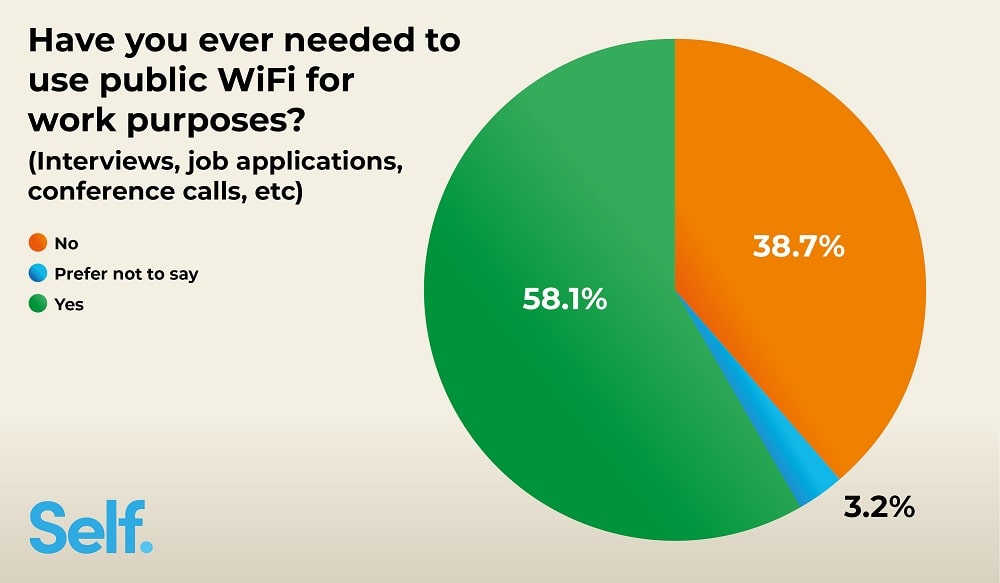
Just over a third (35%) said that they had to use public WiFi due to home internet outages, slightly less (34%) said that their speeds were too poor at home, and 25% said that such broadband is not available in their home area - a key point for the internet being a utility for many.
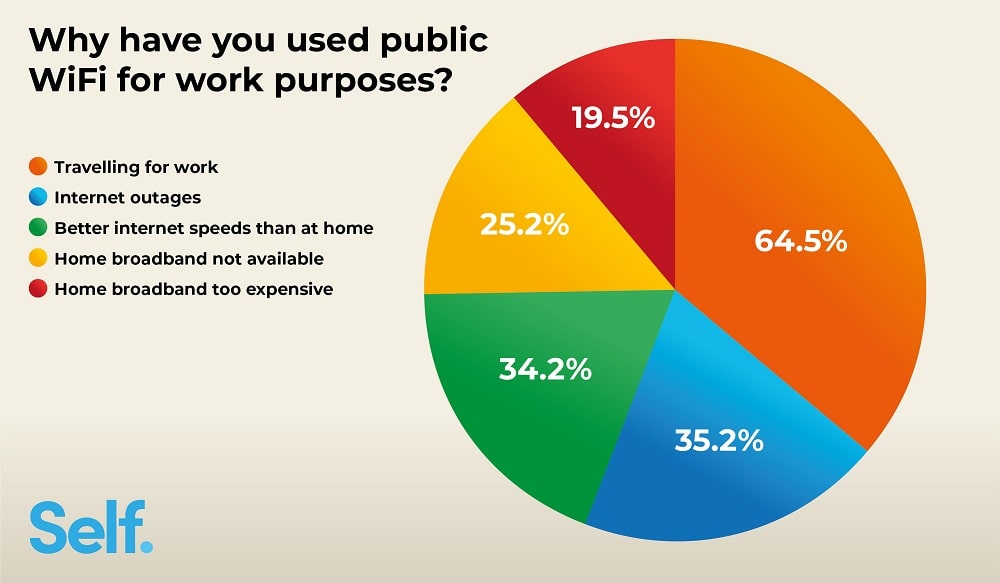
More than 3 in 4 (77%) said internet is now more important due to the pandemic
Home internet usage in the US has increased an average of 18% since the pandemic began and 77% of our sample said that the internet has become more important to them since March 2020. This rises to 86% for those living in shared housing or with friends, followed by those living alone (79%), and drops to 70% for those living with their parents. This indicates a slight trend shift where the internet is more important for those living away from their parents in our sample.
Over half (52%) avoided seeking medical help due to lack of video access
One key reason for internet usage in the last year has been video calling medical professionals due to an increase in telehealth usage and coverage across 43 states and D.C. We asked our respondents if they had avoided asking for medical help with their doctors during this period due to the pandemic’s socially distanced nature, 52% said they had.
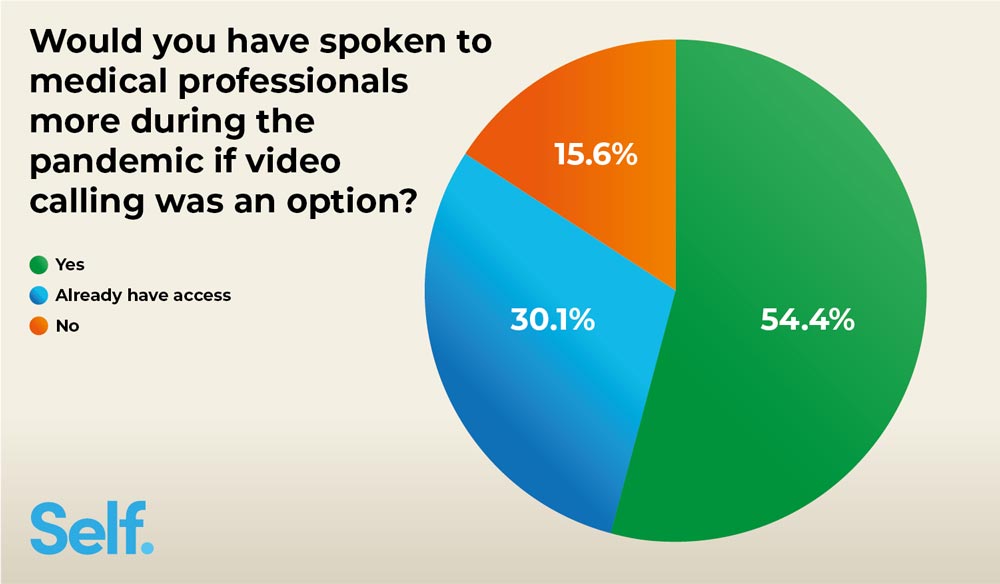
A similarly sized group of respondents (54%) said that they would have spoken to medical professionals more during this time if video calling was an option for them.
Methodology
A sample of 1,033 Americans were surveyed between February 15th-19th, 2021 using Amazon’s Mechanical Turk survey platform. Questions were asked relating to treating the internet as a utility and any implications of this. The breakdown of the audience sampled is as follows:
Gender:
- Female (46.52%)
- Male (52.22%)
- Other (1.36%)
Age:
- 18 - 21(3.48%)
- 22 - 25(9.96%)
- 25 - 30(19.92%)
- 31 - 40(35.98%)
- 41 - 50(17.02%)
- 51 - 60(8.61%)
- 61+ (5.03%)
Work status:
- Business owner (2.32%)
- Freelancer (9.48%)
- Full-time employee (58.80%)
- Part-time employee (15.09%)
- Unemployed (14.31%)
Living status:
- Living alone (19.34%)
- Living in an assisted living community (0.10%)
- Living in shared accommodation/living with friends (4.16%)
- Living with a partner (31.33%)
- Living with family (children) (32.50%)
- Living with parents (12.57%)


